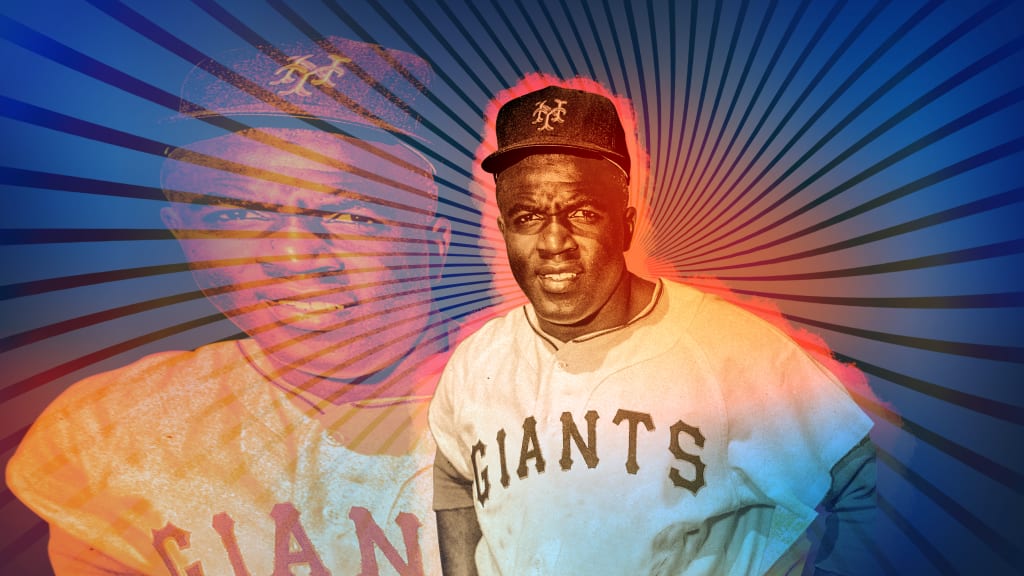
It's generally understood that fans care more about team rivalries than the players do. Hell will freeze over and pigs will fly before a Red Sox fan cheers for the Yankees or a Cubs fan cheers for the Cardinals. Players, on the other hand, move between rival franchises all the time without a second thought.
But, there was at least one time a player approached a rivalry with the ferocity of a fan: In 1957, when Jackie Robinson decided to retire rather than play for the Giants.
That's how the story goes, at least. In fact, it went down just a little bit differently.
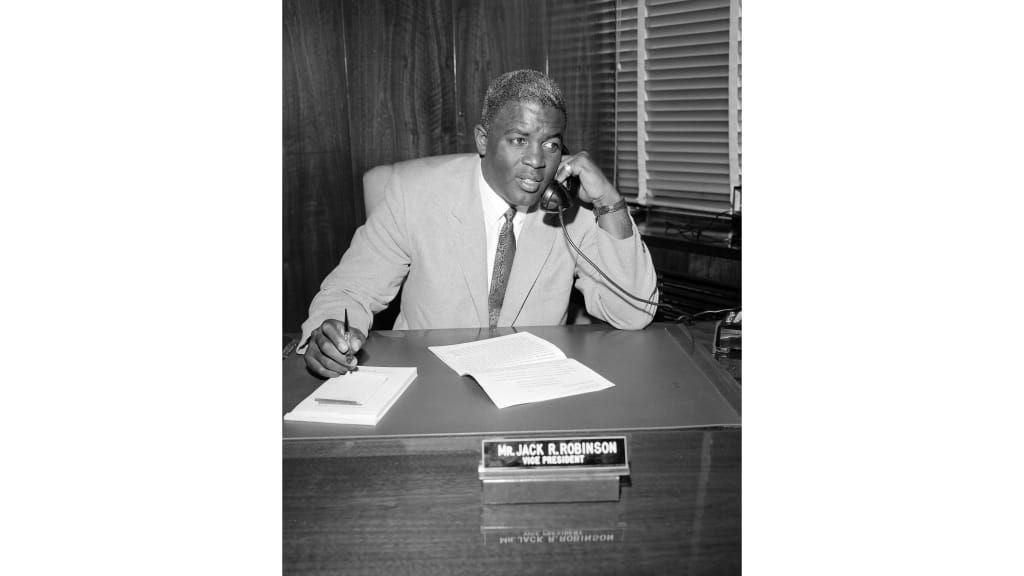
On Dec. 13, 1956, the Dodgers traded Robinson -- the 1947 Rookie of the Year, the 1949 NL MVP, the man who hit .311 lifetime, stole home in the World Series and brought championship baseball to Brooklyn -- to the hated Giants in exchange for reliever Dick Littlefield and $30,000.
The Giants may have won the World Series as recently as '54, but they'd fallen on hard times since, winning only 67 games in '56. They had Willie Mays -- perhaps the best player in the game -- just entering his prime, but aside from him, they needed some help, and Robinson fit the bill.
Unbeknownst to both teams, though, Robinson had already accepted a job with Chock Full O' Nuts as Vice President of personnel relations and planned to retire in order to pursue his post-playing career.
Since news cycles moved at a much different pace in the mid-20th century than they do today, it was weeks before either team had an inkling of the player's intentions. In fact, Robinson had a pre-existing deal with Look Magazine -- reportedly worth $50,000 -- to announce his retirement. That meant the public couldn't know about his decision until the magazine's Jan. 8, 1957, publication date.
News of Robinson's planned retirement wound up leaking a few days prior. It understandably drew the ire of Dodgers vice president Buzzie Bavasi, who thought he had a deal in hand and reacted by accusing Robinson of deceiving reporters into thinking that he planned to join the Giants and play in '57.
Bavasi's comments wound up solidifying Robinson's conviction to call it a career. "There isn't a chance in the world I'll ever put on a baseball uniform again," he said to the media in response. The New York Post reported that there was an element of spite in Robinson's approach to the matter.
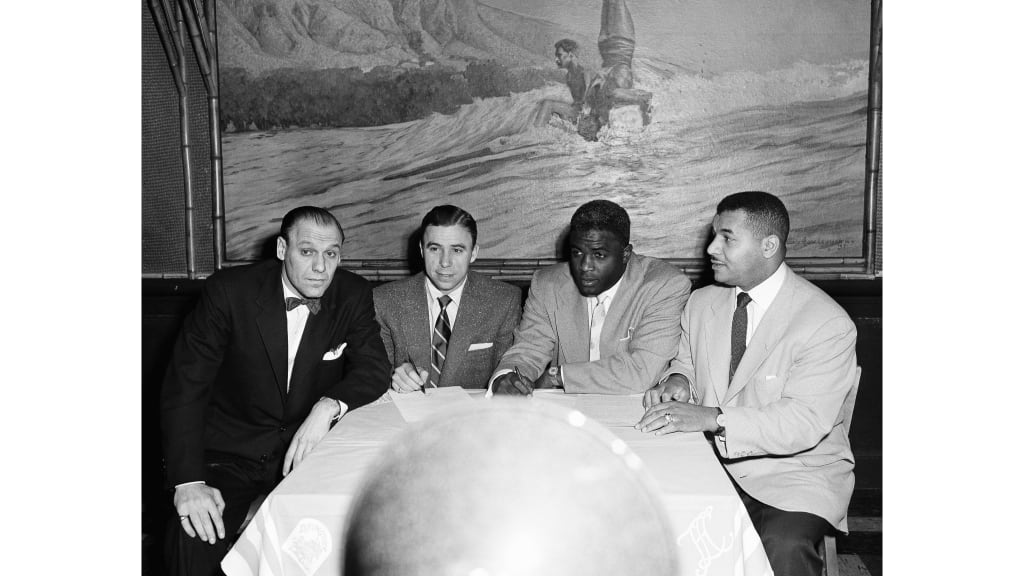
But Robinson's hesitance to continue his playing career and join the Giants didn't deter team Vice President Chubby Feeney from trying to make the trade happen. Robinson may have been 37 and in the latter stages of his career, but he was still a productive player -- he hit .275 with 10 homers in '56 and even garnered some MVP votes.
Sure, Robinson may have promised he'd take that job with the coffee company, but, I mean, can't there be some way out of that?
It turned out that there was. Feeney called up Chock Full O'Nuts president William Black to see if it would be possible for Robinson to become the company's VP of personnel after he played just one more baseball season.
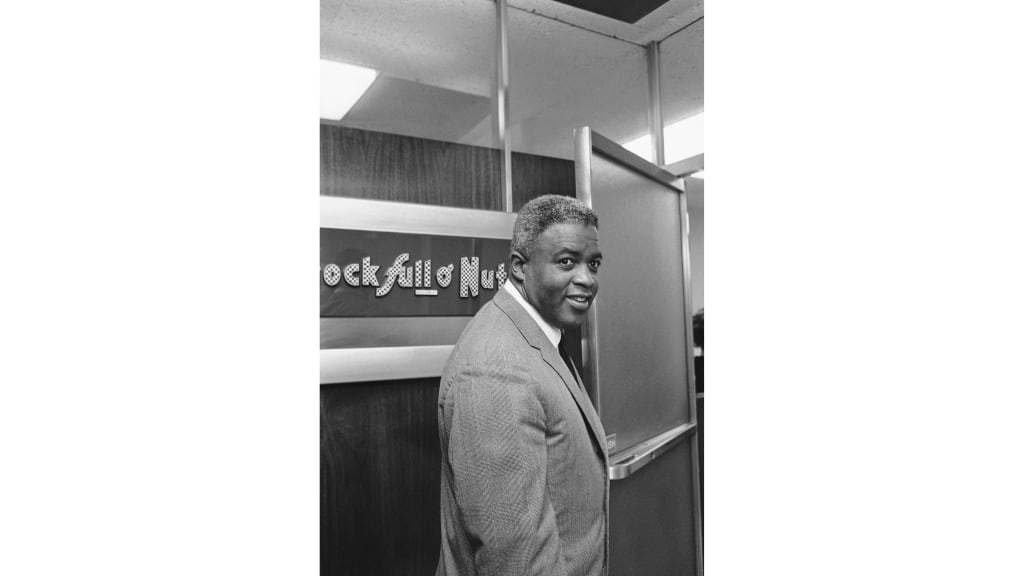
That would have been fine by Black. "It's up to Robinson," Feeney quoted Black. "If he wants to play, we can hold the job open for him till next October."
So, if left to Feeney, Bavasi and Black, the trade might just have happened and Robinson would have spent the 1957 season in Manhattan as a Giant. But it wasn't up to them -- it was Robinson's decision, and the player's mind was made up.
"I'm sorry if it hurts the Giants," Robinson said, "but that's the way it is. I'll talk with Feeney, but it won't do a bit of good."
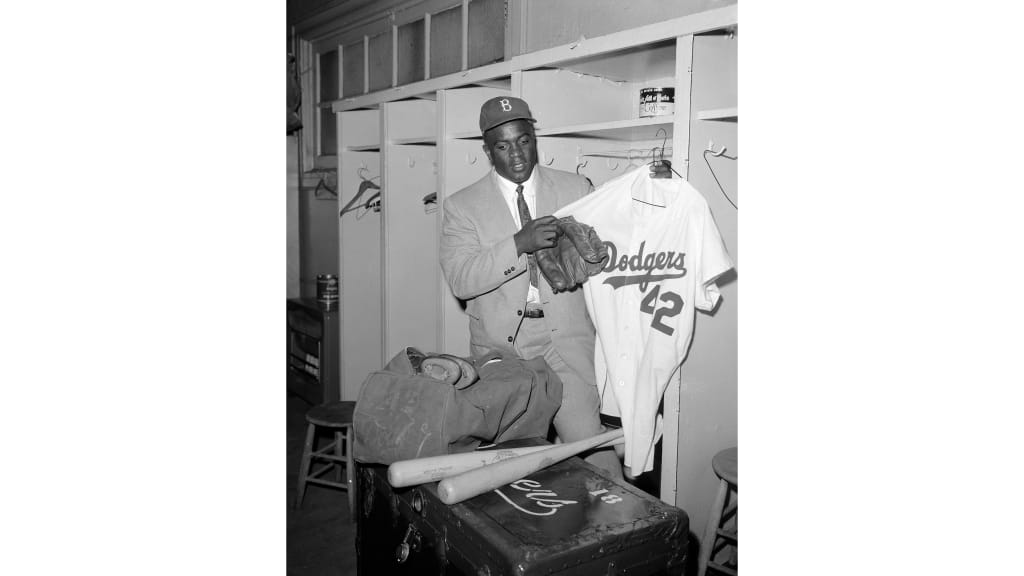
Instead of reporting to his new team, Robinson decided he'd rather retire.
Despite how it might appear, Robinson's retirement had nothing to do with a deep-seated aversion to playing for a rival. If the decision was fueled by animus at all, it was animus toward Bavasi for burning the organization's bridges with its star after agreeing to a trade.
Even that framing probably ascribes more drama to the story than is due. The boring explanation -- that Robinson saw his career coming to an end and took a promising opportunity to transition to his post-playing career -- is probably the most accurate.
In fact, he penned a sincere letter to Giants owner Horace Stoneham to inform him of the decision (you know it's sincere because he signed it "Sincerely"):
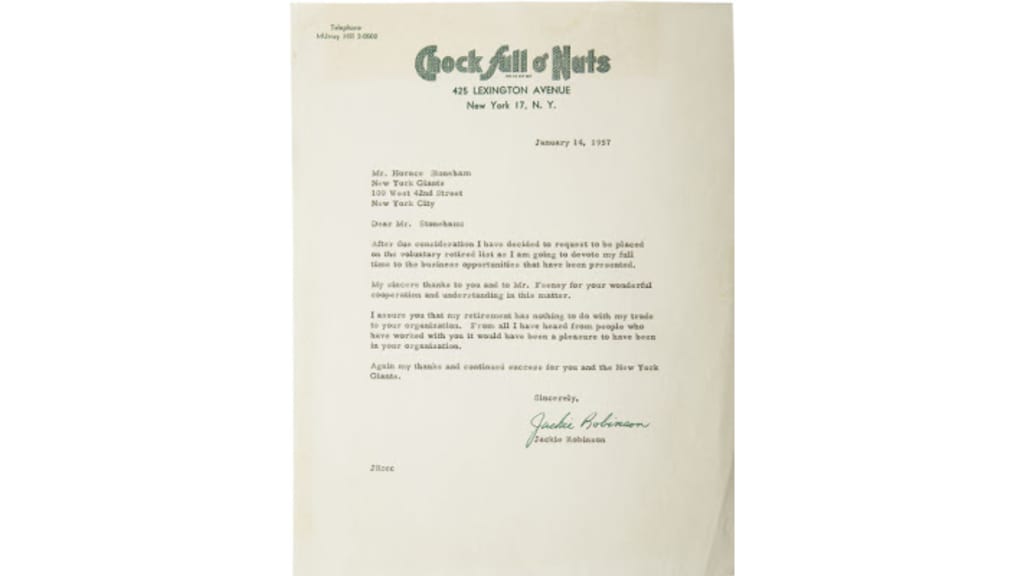
Dear Mr. Stoneham:
After due consideration I have decided to request to be placed on the voluntary retired list as I am going to devote my full time to the business opportunities that have been presented.
My sincere thanks to you and to Mr. Feeney for your wonderful cooperation and understanding in this matter.
I assure you that my retirement has nothing to do with my trade to your organization. From all I have heard from people who have worked with you it would have been a pleasure to have been in your organization.
Again my thanks and continued success for you and the New York Giants.
Sincerely,
Jackie Robinson
Once he announced his retirement in Look Magazine and sent the subsequent letter to Stoneham, the trade to the Giants was off. The matter became official two days later when National League president Warren Giles signed his name to Robinson's request to retire, thus voiding the deal. The Dodgers had to return Littlefield and the $30,000 to their rivals.
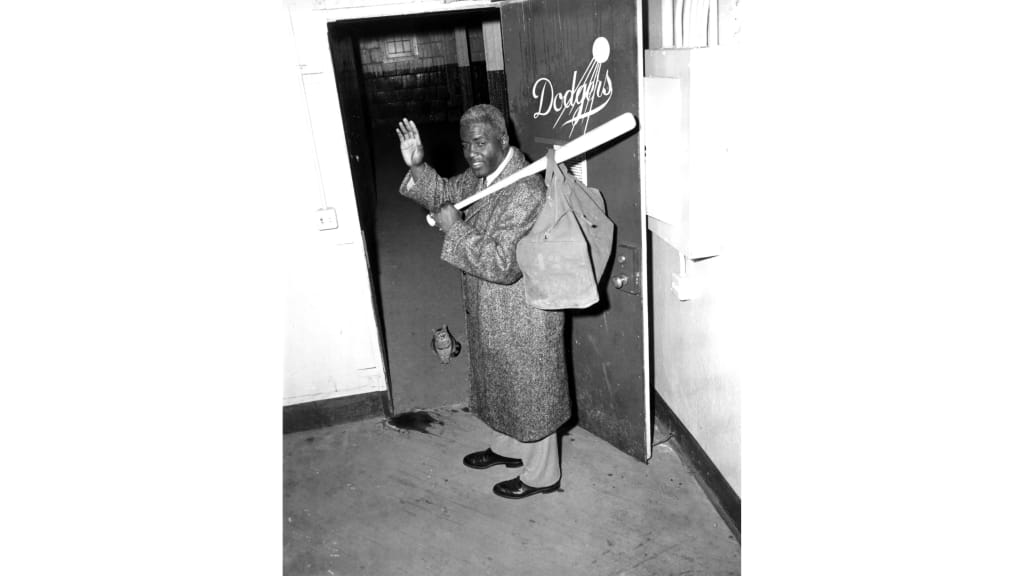
The gap between the trade and Robinson's announcement also begged a photo opportunity when news of the swap broke. Which is how we ended up with Robinson, his wife Rachel and their son Jackie Jr. posed for a photograph with a bunch of New York Giants swag, now a relic of an era that never was.
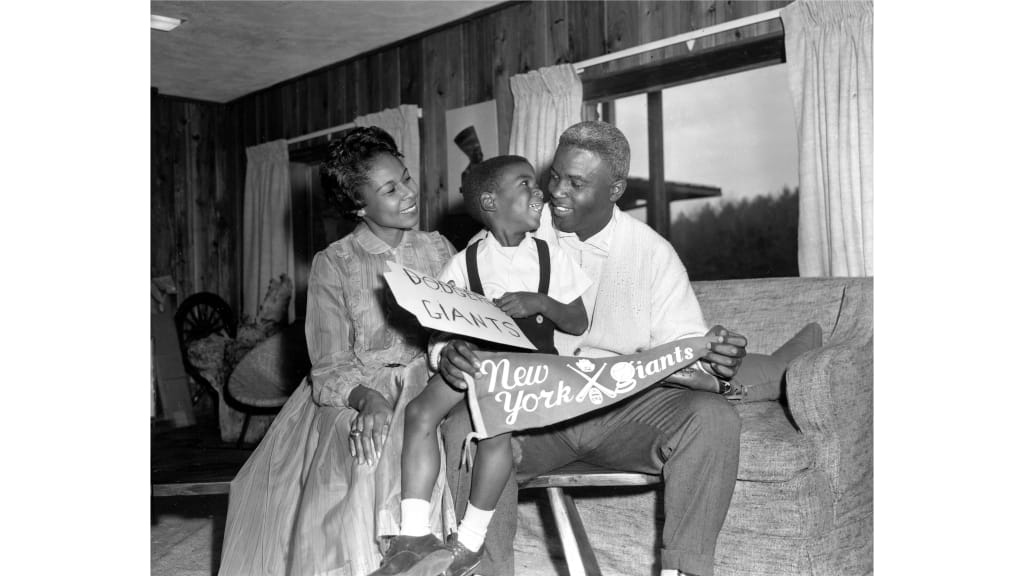
That photo, of course, would be the closest Robinson would ever come to representing the Giants, as his retirement marked the end of a 10-year career in the Majors -- all with the Dodgers.
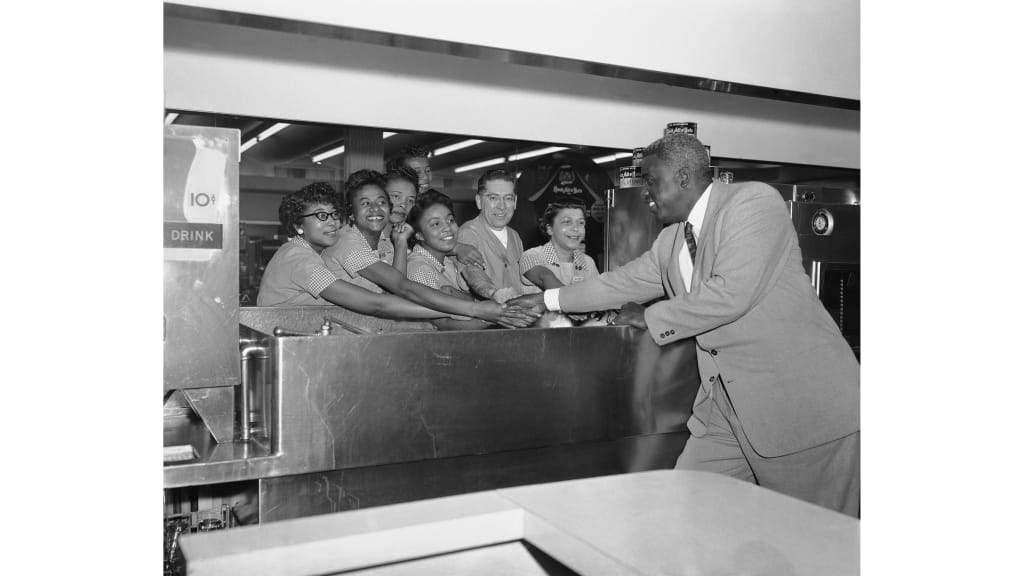
With Chock Full O'Nuts, Robinson became the first African-American to serve as vice president of a major company. He reportedly saw his business career as a crucial component of his advocacy for racial equality. That ideological commitment undoubtedly influenced his choice to not join the Giants.
Robinson remained with Chock Full O'Nuts for seven years. In 1964, he left to help found Freedom National Bank, a commercial bank in Harlem.
